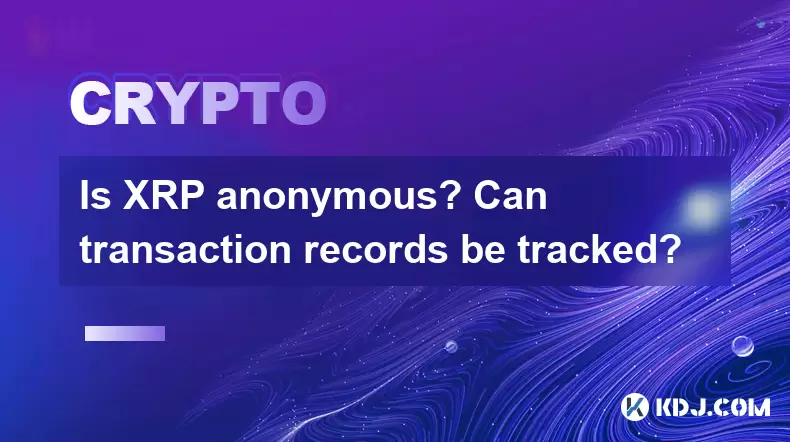-
 Bitcoin
Bitcoin $118300
1.01% -
 Ethereum
Ethereum $4215
0.69% -
 XRP
XRP $3.198
-3.83% -
 Tether USDt
Tether USDt $1.000
-0.01% -
 BNB
BNB $803.4
-0.53% -
 Solana
Solana $180.3
-0.67% -
 USDC
USDC $0.9998
-0.01% -
 Dogecoin
Dogecoin $0.2334
-1.49% -
 TRON
TRON $0.3394
0.86% -
 Cardano
Cardano $0.7980
-1.45% -
 Chainlink
Chainlink $22.19
6.65% -
 Hyperliquid
Hyperliquid $43.41
0.13% -
 Stellar
Stellar $0.4407
-3.13% -
 Sui
Sui $3.843
-2.24% -
 Bitcoin Cash
Bitcoin Cash $564.7
-3.74% -
 Hedera
Hedera $0.2588
-3.41% -
 Ethena USDe
Ethena USDe $1.001
0.00% -
 Avalanche
Avalanche $23.64
-3.37% -
 Litecoin
Litecoin $120.0
-4.01% -
 Toncoin
Toncoin $3.342
-1.11% -
 UNUS SED LEO
UNUS SED LEO $9.038
0.60% -
 Shiba Inu
Shiba Inu $0.00001347
-0.81% -
 Uniswap
Uniswap $10.69
-4.58% -
 Polkadot
Polkadot $4.034
-1.30% -
 Dai
Dai $1.000
0.01% -
 Bitget Token
Bitget Token $4.472
-1.52% -
 Cronos
Cronos $0.1571
-3.04% -
 Pepe
Pepe $0.00001207
-2.21% -
 Monero
Monero $273.8
-3.19% -
 Ethena
Ethena $0.7520
2.75%
Is XRP anonymous? Can transaction records be tracked?
XRP transactions are pseudonymous but not anonymous; all records are trackable on the public XRP Ledger, though privacy measures can be taken.
May 12, 2025 at 03:00 am

Is XRP anonymous? Can transaction records be tracked?
The question of whether XRP is anonymous and if its transaction records can be tracked is a crucial one for users of the cryptocurrency. XRP, the native cryptocurrency of the Ripple network, has garnered significant attention for its potential in facilitating fast and low-cost cross-border payments. However, the level of anonymity and traceability of XRP transactions is a topic that requires a detailed exploration.
Understanding XRP and the Ripple Network
XRP operates on the Ripple network, which is designed to enable quick and efficient transactions. The Ripple network uses a consensus protocol, which differs from the proof-of-work system used by Bitcoin. This consensus mechanism allows for faster transaction processing times, making XRP an attractive option for financial institutions and individual users alike. However, the design of the Ripple network also has implications for the privacy and anonymity of XRP transactions.
Anonymity in XRP Transactions
When it comes to anonymity, XRP does not provide the same level of privacy as some other cryptocurrencies like Monero or Zcash. XRP transactions are pseudonymous, meaning that while the identities of the users are not directly revealed, the transactions themselves are recorded on the public ledger. Each transaction on the Ripple network is associated with a unique address, rather than a real-world identity. This pseudonymous nature means that without additional information, it is difficult to link a transaction to a specific individual.
However, this pseudonymous nature does not equate to full anonymity. Various methods and tools can be used to de-anonymize XRP transactions, potentially revealing the identities of the parties involved. For instance, if a user links their XRP address to their real-world identity on a public platform or if they use an exchange that requires KYC (Know Your Customer) verification, the anonymity of their transactions can be compromised.
Tracking XRP Transaction Records
The Ripple network maintains a public ledger known as the XRP Ledger, which records all transactions that occur on the network. This ledger is fully transparent and accessible to anyone, meaning that all XRP transactions can be tracked and analyzed. Each transaction includes details such as the sender's address, the recipient's address, the amount transferred, and the transaction fee.
To track an XRP transaction, one can use various blockchain explorers and analytical tools. These tools allow users to input a transaction hash or an address to view the history and details of transactions associated with it. For example, if you want to track a specific XRP transaction, you can follow these steps:
- Visit a blockchain explorer like Bithomp or XRP Scan.
- Enter the transaction hash or the address you want to track in the search bar.
- Review the transaction details, including the sender, recipient, amount, and timestamp.
These tools provide a comprehensive view of the transaction history, making it possible to trace the flow of XRP from one address to another. This level of transparency is beneficial for regulatory compliance and fraud prevention but can be a concern for users seeking privacy.
Privacy Measures and Best Practices
While XRP transactions are not fully anonymous, there are certain measures and best practices that users can adopt to enhance their privacy. Using new addresses for each transaction can help obscure the link between transactions and a single user. Many wallets support the generation of new addresses, which can be used to receive XRP without revealing the connection to previous transactions.
Another approach is to use mixing services or tumblers, which are designed to break the link between the sender and recipient of a transaction. However, it is important to note that using such services can carry risks, including potential legal issues and the possibility of losing funds to fraudulent operators.
Additionally, users can opt for decentralized exchanges (DEXs) that do not require KYC verification, thereby reducing the risk of their real-world identity being linked to their XRP transactions. However, it is crucial to research and choose reputable DEXs to avoid scams and security breaches.
Regulatory and Legal Considerations
The transparency of the XRP Ledger and the ability to track transactions have significant implications for regulatory compliance. Financial institutions and regulatory bodies can use the public ledger to monitor and investigate suspicious activities, ensuring compliance with anti-money laundering (AML) and know your customer (KYC) regulations. This level of transparency is one of the reasons why XRP has been considered for use in regulated financial systems.
However, this also means that users must be aware of the legal implications of their transactions. Engaging in activities that violate AML and KYC regulations can lead to legal consequences, including fines and criminal charges. Therefore, it is essential for users to understand the regulatory environment in their jurisdiction and ensure that their use of XRP complies with local laws.
Conclusion and FAQs
In conclusion, while XRP transactions are pseudonymous, they are not fully anonymous, and all transaction records can be tracked on the public XRP Ledger. Users can take certain measures to enhance their privacy, but they must also be mindful of the legal and regulatory implications of their actions.
Frequently Asked Questions:
1. Can I use a VPN to enhance my privacy when using XRP?
Using a VPN can help mask your IP address and enhance your online privacy, but it does not affect the transparency of the XRP Ledger. Your transactions will still be recorded and traceable on the public ledger.
2. Are there any plans to improve the anonymity of XRP transactions?
As of now, there have been no official announcements from Ripple regarding changes to the anonymity of XRP transactions. Any updates or changes would be communicated through official channels.
3. How can I protect my XRP from being stolen?
To protect your XRP from theft, use a secure wallet, enable two-factor authentication (2FA) where available, and never share your private keys or seed phrases with anyone. Regularly update your wallet software and be cautious of phishing attempts.
4. Can I use XRP for illegal activities without being traced?
Using XRP for illegal activities is highly risky and not recommended. The transparency of the XRP Ledger means that transactions can be traced, and engaging in illegal activities can lead to legal consequences. Always use cryptocurrencies responsibly and within the bounds of the law.
Disclaimer:info@kdj.com
The information provided is not trading advice. kdj.com does not assume any responsibility for any investments made based on the information provided in this article. Cryptocurrencies are highly volatile and it is highly recommended that you invest with caution after thorough research!
If you believe that the content used on this website infringes your copyright, please contact us immediately (info@kdj.com) and we will delete it promptly.
- Gemini AI's Crypto Crystal Ball: Predicting 1000x Gains with Meme Coins?
- 2025-08-11 02:50:12
- Cold Wallet Crypto Presale: Your Price Edge in the Wild West of Crypto
- 2025-08-11 02:50:12
- Lil Pepe: The Undervalued Meme Coin Set to Explode in 2025?
- 2025-08-11 02:30:12
- MoonBull, Crypto Trends, and Meme Culture: Navigating the Hype in 2025
- 2025-08-11 02:30:12
- BlockchainFX, Crypto Presale, Bitcoin Hyper: The NY Perspective on 2025's Hottest Crypto
- 2025-08-11 01:10:14
- Cold Wallet, Crypto Presales, and ROI Potential: A New Yorker's Take
- 2025-08-11 01:10:14
Related knowledge

How to purchase Aragon (ANT)?
Aug 09,2025 at 11:56pm
Understanding Aragon (ANT) and Its PurposeAragon (ANT) is a decentralized governance token that powers the Aragon Network, a platform built on the Eth...

Where to trade Band Protocol (BAND)?
Aug 10,2025 at 11:36pm
Understanding the Role of Private Keys in Cryptocurrency WalletsIn the world of cryptocurrency, a private key is one of the most critical components o...

What is the most secure way to buy Ocean Protocol (OCEAN)?
Aug 10,2025 at 01:01pm
Understanding Ocean Protocol (OCEAN) and Its EcosystemOcean Protocol (OCEAN) is a decentralized data exchange platform built on blockchain technology,...

Where can I buy UMA (UMA)?
Aug 07,2025 at 06:42pm
Understanding UMA and Its Role in Decentralized FinanceUMA (Universal Market Access) is an Ethereum-based decentralized finance (DeFi) protocol design...

How to buy Storj (STORJ) tokens?
Aug 09,2025 at 07:28am
Understanding Storj (STORJ) and Its Role in Decentralized StorageStorj is a decentralized cloud storage platform that leverages blockchain technology ...

What is the best app to buy Nano (NANO)?
Aug 09,2025 at 03:35am
Understanding Nano (NANO) and Its Unique FeaturesNano is a feeless, instant cryptocurrency designed for fast peer-to-peer transactions. Unlike many ot...

How to purchase Aragon (ANT)?
Aug 09,2025 at 11:56pm
Understanding Aragon (ANT) and Its PurposeAragon (ANT) is a decentralized governance token that powers the Aragon Network, a platform built on the Eth...

Where to trade Band Protocol (BAND)?
Aug 10,2025 at 11:36pm
Understanding the Role of Private Keys in Cryptocurrency WalletsIn the world of cryptocurrency, a private key is one of the most critical components o...

What is the most secure way to buy Ocean Protocol (OCEAN)?
Aug 10,2025 at 01:01pm
Understanding Ocean Protocol (OCEAN) and Its EcosystemOcean Protocol (OCEAN) is a decentralized data exchange platform built on blockchain technology,...

Where can I buy UMA (UMA)?
Aug 07,2025 at 06:42pm
Understanding UMA and Its Role in Decentralized FinanceUMA (Universal Market Access) is an Ethereum-based decentralized finance (DeFi) protocol design...

How to buy Storj (STORJ) tokens?
Aug 09,2025 at 07:28am
Understanding Storj (STORJ) and Its Role in Decentralized StorageStorj is a decentralized cloud storage platform that leverages blockchain technology ...

What is the best app to buy Nano (NANO)?
Aug 09,2025 at 03:35am
Understanding Nano (NANO) and Its Unique FeaturesNano is a feeless, instant cryptocurrency designed for fast peer-to-peer transactions. Unlike many ot...
See all articles

























































































